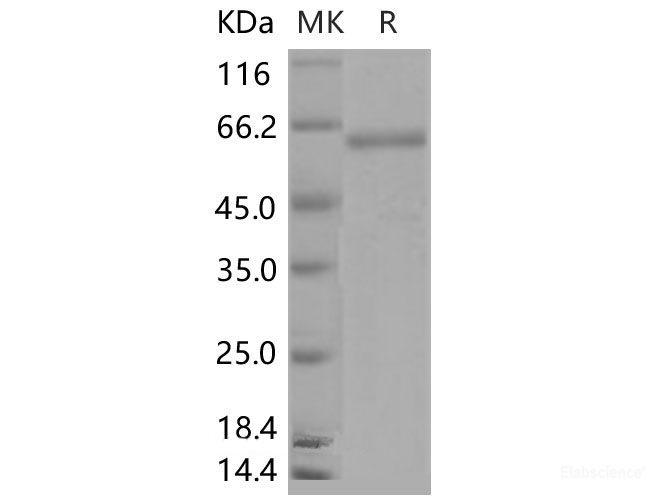Background
Sphingomyelin phosphodiesterase 1 (SMPD1) , also known as ASM ( acid sphingomyelinase ), is a member of the acid sphingomyelinase family of enzymes. Three isoforms have been identified, isoform 1 is 631 amino acids (aa) in length as the pro form, while Isoform 2 and isoform 3 have lost catalytic activity. The active SMPD1 isoform 1 contains one saposin B-type domain that likely interacts with sphingomyelin, and a catalytic region. Human SMPD1 is 86% aa identical to mouse SMPD1. SMPD1 is a monomeric lysosomal enzyme that converts sphingomyelin (a plasma membrane lipid ) into ceramide through the removal of phosphorylcholine. This generates second messenger components that participate in signal transduction. Defects in SMPD1 are the cause of Niemann-Pick disease type A (NPA) and type B (NPB), also known as Niemann-Pick disease classical infantile form and Niemann-Pick disease visceral form. Niemann-Pick disease is a clinically and genetically heterogeneous recessive disorder. NPB has little if any neurologic involvement and patients may survive into adulthood.







